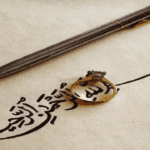In the rich tapestry of Islamic culture, prayers and supplications play a pivotal role. These spiritual practices are not mere rituals but profound expressions of faith and devotion. Among the many supplications, the “pani peene ki dua” holds a special place, emphasizing the sanctity of even the simplest acts in our daily lives.
Contents
- 0.1 Pani peene ki dua with tarjuma
- 0.2 Understanding the Power of Dua
- 0.3 Pani Peene Ki Dua: The Prayer for Drinking Water
- 0.4 Step-by-Step Guide to Pani Peene Ki Dua
- 0.5 The Connection Between Gratitude and Dua
- 0.6 Dua in Everyday Life
- 0.7 Perplexity in Prayers: Finding Meaning in Rituals
- 0.8 Burstiness in Faith: Moments of Spiritual Intensity
- 0.9 Balancing Specificity and Context in Supplications
- 0.10 The Impact of Language in Dua
- 0.11 Engaging Readers: Making Dua Personal
- 0.12 Active Voice in Dua: Communicating with Conviction
- 0.13 Keeping it Simple: The Beauty of Uncomplicated Prayers
- 0.14 Rhetorical Questions in Dua: Invoking Thought and Reflection
- 0.15 Analogies and Metaphors: Enhancing the Prayer Experience
- 1 Conclusion
- 1.1 FAQs
- 1.1.1 Is it necessary to recite the “pani peene ki dua” every time I drink water?
- 1.1.2 Can I make personal requests in my supplications?
- 1.1.3 How often should I engage in dua in my daily life?
- 1.1.4 Is there a specific time for making supplications?
- 1.1.5 Can I create my own prayers, or should I strictly follow established ones?
- 1.1 FAQs
Pani peene ki dua with tarjuma
Pani Peene ki Dua in Arabic
بِسْمِ اللّٰہِ الرَّحْمٰنِ الرَّحِیْمِ
Pani Peene ki Dua in Arabic
In the name of God, the Most Gracious, the Most Merciful
Pani Peene ki Dua in Hindi
ईश्वर के नाम पर, परम दयालु, परम दयालु
Pani Peene ki Dua in Urdu
خدا کے نام سے جو بڑا مہربان نہایت رحم والا ہے۔
Pani peene ki dua images

Understanding the Power of Dua
Before delving into the specifics of the “pani peene ki dua,” it’s essential to grasp the concept of dua itself. Dua, or supplication, is a means through which believers communicate with the divine. It goes beyond seeking material gains; it’s a way of seeking blessings, guidance, and expressing gratitude.
Pani Peene Ki Dua: The Prayer for Drinking Water
In the hustle and bustle of our lives, the act of drinking water is often overlooked. However, in Islamic tradition, even this mundane activity is accompanied by a prayer. The “pani peene ki dua” is a beautiful acknowledgment of the divine’s role in providing sustenance and the recognition that even a sip of water is a blessing.
Step-by-Step Guide to Pani Peene Ki Dua
Let’s break down this prayer into meaningful steps:
- Intention (Niyyah): Before taking a sip, form the intention to drink with gratitude.
- Recitation of Dua: “Bismillah hir-Rahman ir-Rahim. Alhamdulillahillathee sakaana wamaa kunnaa lahu muqrineen wainna ilaa rabbina lamunqaliboon.”
- Sip with Mindfulness: Drink slowly, savoring each sip, and maintaining awareness of the divine blessings.
This simple yet profound practice turns a daily routine into a spiritual act, fostering mindfulness and gratitude.
The Connection Between Gratitude and Dua
Expressing gratitude is an integral part of Islamic teachings. The “pani peene ki dua” encapsulates this principle, reminding believers that every sip of water is a gift worthy of acknowledgment. Gratitude, when woven into supplications, becomes a source of joy and contentment.
Dua in Everyday Life
Beyond the specific prayer for drinking water, dua permeates various aspects of daily life. Whether it’s seeking guidance in decisions, expressing gratitude for blessings, or seeking protection, regular supplications create a continuous connection with the divine.
Perplexity in Prayers: Finding Meaning in Rituals
In the realm of religious practices, the concept of perplexity arises when rituals become routine. To truly benefit from prayers, including the “pani peene ki dua,” one must delve into the meaning behind the actions. Understanding the spiritual significance transforms rituals into meaningful experiences.
Burstiness in Faith: Moments of Spiritual Intensity
Faith is not a constant; it experiences moments of burstiness, intense spiritual highs that elevate the believer. The act of dua, including the “pani peene ki dua,” can be a catalyst for such moments. Sharing personal experiences or anecdotes can resonate with readers, illustrating the transformative power of faith.
Balancing Specificity and Context in Supplications
When making supplications, there’s a delicate balance between specific requests and broader context. While it’s natural to seek personal favors, understanding the bigger picture and aligning one’s desires with divine wisdom enhances the sincerity of prayers.
The Impact of Language in Dua
Language is a powerful tool in expressing emotions and desires. Using one’s native language in dua adds a personal touch, creating a deeper connection with the divine. The sincerity and authenticity of prayers are heightened when expressed in the language of the heart.
Engaging Readers: Making Dua Personal
For readers looking to enhance their prayer experience, personalization is key. Tailoring supplications to individual experiences, challenges, and aspirations makes the act of dua more intimate and meaningful. The divine connection becomes a personal conversation.
Active Voice in Dua: Communicating with Conviction
The choice of voice in supplications matters. Using the active voice conveys conviction and determination. Instead of passive requests, active prayers express a strong desire and unwavering faith in the divine’s ability to respond.
Keeping it Simple: The Beauty of Uncomplicated Prayers
In the complexity of life, simplicity stands out. Uncomplicated prayers, like the “pani peene ki dua,” showcase the beauty of straightforward communication with the divine. A humble and sincere heart finds solace in simplicity.
Rhetorical Questions in Dua: Invoking Thought and Reflection
Integrating rhetorical questions into prayers adds depth and encourages reflection. Thought-provoking questions stimulate the mind, fostering a deeper understanding of one’s desires and the divine’s wisdom.
Analogies and Metaphors: Enhancing the Prayer Experience
The use of analogies and metaphors enriches the prayer experience. Comparing personal struggles to natural elements or life situations deepens the spiritual connection. It transforms abstract concepts into tangible expressions of faith.
Conclusion
In the tapestry of Islamic spirituality, dua, including the “pani peene ki dua,” weaves a thread of connection between believers and the divine. It’s a reminder that every aspect of life, even the seemingly ordinary, is an opportunity for spiritual growth and gratitude. Embrace the simplicity, engage in burstiness of faith, and let your prayers resonate with the language of your heart.
Related Posts:
FAQs
Is it necessary to recite the “pani peene ki dua” every time I drink water?
While not obligatory, reciting the dua adds a spiritual dimension to a mundane act, fostering mindfulness.
Can I make personal requests in my supplications?
Absolutely. Dua is a personal conversation with the divine, and you can express your desires, challenges, and aspirations.
How often should I engage in dua in my daily life?
Regular engagement is encouraged. Whether in moments of joy, sorrow, or decision-making, dua establishes a constant connection with the divine.
Is there a specific time for making supplications?
While there are recommended times, dua is not restricted to specific moments. You can pray at any time, seeking guidance and blessings.
Can I create my own prayers, or should I strictly follow established ones?
Both are valid. While established prayers have their merit, personalizing supplications adds a unique touch to your spiritual journey.










